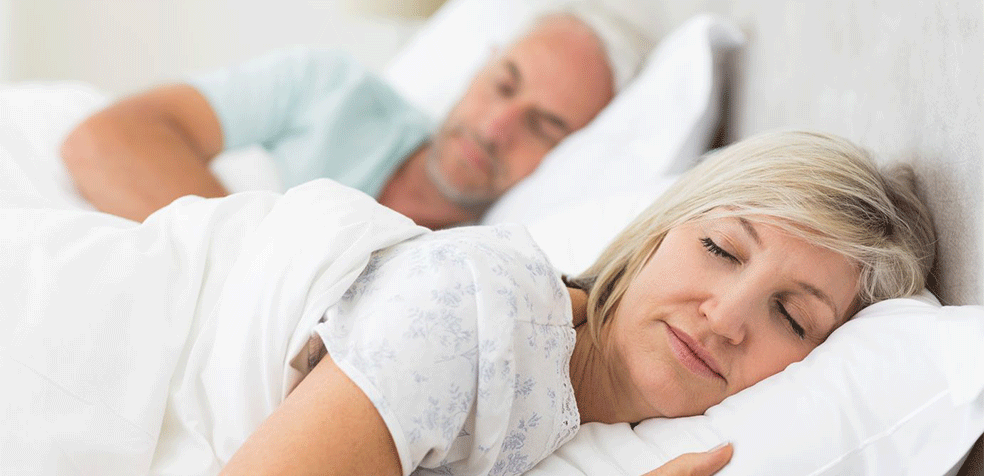Getting a good night's sleep

Our sleeping patterns naturally change as we get older, so it’s not unusual to have trouble sleeping. This means that many of us can struggle to get to sleep or stay asleep, leaving us tired and grumpy the following day.
Chronic sleep problems should not be regarded as either an inevitable, or a normal part of the ageing process.
How much sleep do I need each night?
Everyone needs different amounts of sleep, but on average, adults need between seven and nine hours of sleep. We need the same amount of sleep as we get older, but we are less able to stay asleep as we age.
What is insomnia?
Most of us have trouble sleeping from time to time, especially if we're feeling stressed or anxious. However, if you frequently feel tired throughout the day, a lack of sleep could be a problem.
The main symptoms of insomnia are:
- difficulty falling asleep
- waking up in the night
- waking up early in the morning
- feeling tired, irritable and having trouble concentrating during the day.
Insomnia is more common in women than men, and tends to increase with age.
It can also be triggered by a stressful event, anxiety, health problems and some medications.
How can insomnia affect me?
While the occasional bad night’s sleep is unlikely to affect you too much, insomnia can have a huge impact on your daily life.
Lack of sleep is associated with poor performance at work and it can affect your mood, causing problems within your relationships. Poor sleep can also affect your appetite, making you more likely to crave unhealthy foods and gain weight.
Regular poor sleep can lead to a higher risk of some health conditions, such as heart disease and diabetes. It can also affect your mental wellbeing, causing conditions such as depression and anxiety.
Sleep deprivation can lead to accidents and injuries and can also affect memory, because sleep cycles give your brain a chance to consolidate memories.
For all these reasons, it’s important to talk to your GP if you’re not getting the sleep you need.
Top tips for sleeping well
Experts agree that practising good 'sleep hygiene' can make an important contribution to getting a good night’s sleep. This is just another way of saying that you need to get into good habits:
- Go to bed and get up at the same time every day.
- Avoid lying in.
- Establish a bedtime routine – relax by reading a book or having a bath.
- Make sure that your bed and bedding are comfortable.
- Avoid caffeine, nicotine and alcohol in the evening.
- Don’t eat a heavy meal late at night.
- Avoid exercise in the evening.
- Keep your bedroom cool and dark – the ideal bedroom temperature is 18°C.
- Ban TV and computers from the bedroom – the bright light can make you more awake.
- Try to avoid napping during the day. If you do enjoy a daytime nap, schedule this for roughly the same time each day.
If you tend to wake up in the night and struggle to get back to sleep
After 15-20 minutes, get up and go into another room. Avoid doing anything too involved, such as work or housework, and resist the temptation to turn on the television.
Instead, try reading or listening to the radio. Try going back to bed 20-30 minutes later and, if you still have difficulties in getting to sleep or staying asleep try and do the same thing again.
Where can I get help for sleeping problems?
If your sleeping problems last for more than a month and self-help measures don’t seem to be working, it’s a good idea to see your doctor.
At first, your doctor will probably ask you about your sleeping habits, advise you on sleep hygiene and possibly ask you to keep a sleep diary.
You could be referred to a psychological practitioner for cognitive behavioural therapy for insomnia (CBT-I), which can help you to break patterns of thoughts and behaviours that may be contributing to your insomnia.
In the short-term, you may be prescribed a course of sleeping tablets to help you catch up with some sleep, but these aren’t recommended for long-term use as they don’t tackle the underlying causes of insomnia and can be addictive.
There are other medicines to help treat insomnia. Speak to your doctor for more information.
More information you might find useful
